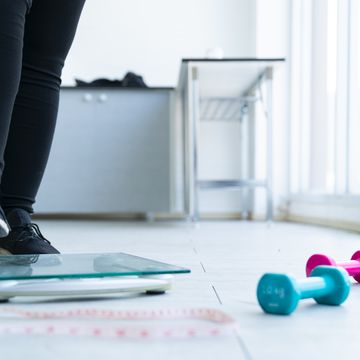Too much booze leads to hangovers. No prizes for knowing that one, but it’s important to be aware of the other ways alcohol can affect your body – and mind – as a runner.
What are the effects of alcohol on your body?
Dehydration
‘Alcohol is a diuretic, which means you’ll pee more,’ says Jack McNamara, clinical exercise physiology lecturer at the University of East London. ‘So losing fluid and not adequately replenishing it increases your chances of dehydration.’ As you sweat, the body sends more blood to the skin to cool down, reducing the blood flow to your muscles to power your run and making you more sluggish.
Weight gain
‘Although alcohol stops you metabolising fat in your diet as normal, you’re not going
to gain weight from alcohol alone unless you have a calorie surplus,’ says McNamara. ‘But studies have found that gaining weight is often due to making bad choices after drinking.’
Compromised recovery
Alcohol can also affect the post-run recovery period. ‘Muscles grow and recover from exercise by a process called muscle protein synthesis (MPS),’ explains McNamara. But an Australian study found that drinking alcohol reduces the rate of MPS, slowing recovery.
Low-quality sleep
Alcohol can disrupt sleep. ‘Overnight, while trying to correct the chemical imbalance, the brain might over-correct, which explains why we might nod off quickly but are suddenly wide awake at 3am,’ says Dr Sally Adams, associate psychology professor at the University of Birmingham.
Reduced oxygen supply
Studies have also found that alcohol can reduce levels of certain hormones, including testosterone. Testosterone increases red blood cell production, and red blood cells are our transport system for getting oxygen to working muscles.
Increased injury risk
A hungover run could send you to the physio. ‘I’ve been interested in how reaction time and coordination are still affected the next day,’ says Dr Adams. ‘This could mean the previous evening’s drinking may increase the risk of injury if you’re not fully coordinated.’
Low motivation
It won’t be a surprise to any of us that the urge to lace up our running shoes is somewhat diluted the morning after. ‘Alcohol affects the brain’s pre-frontal cortex where we make our decisions and set goals, which could explain why intentions for an early morning run get ditched for sleeping off a hangover,’ says Dr Adams.
Other effects
Clearly, the more alcohol is consumed, the more serious the issues become. Heavy drinkers could suffer everything from cirrhosis of the liver to irregular heart rhythms (arrhythmias). But, if you’re a moderate drinker, there’s no need to panic. ‘There are studies suggesting the protective effects of exercise can help balance the effects of moderate drinking,’ says McNamara. ‘In my opinion, there’s no need to stress too much about modest social drinking.’
What alcohol does to your mind
When youre drinking more than usual, add mental health, but it’s clear that long-term alcohol misuse does alter areas of the brain associated with processing stress, emotions and reward. This can increase the risk of disorders such as addiction, depression and anxiety.
This happens when alcohol disrupts the usual balance of chemicals in our brains. ‘The disinhibition experienced after consuming alcohol is due to the enhanced function of inhibitory neurotransmitters, which decrease the responsiveness of neurons to send signals in the brain,’ explains James Clay, a psychology researcher at the University of Portsmouth. ‘So after a few drinks we might feel stimulated but also more relaxed.’
Clay says that once the alcohol’s been metabolised and the ‘high’ wears off, the body attempts to restore its natural balance. But if this balance is continuously upset through drinking, changes happen in the brain that leave individuals less able to effectively process emotions.
Dr Adams has also been looking into ‘hangxiety’, which is low mood and anxiety the next day. ‘There can be a feeling that it’s linked to what you may have done while drinking – possibly something embarrassing – along with a heightened state of anxiety. Although there’s plenty of evidence that exercise can improve these feelings, the reality is that if someone’s hungover, dehydrated and feeling sick, they’re unlikely to go and run to improve this.’
So how can runners minimise their risk of a hangover and still perform well if they have a run planned the next morning? Aside from the obvious (drinking less or not drinking at all), there's a few other things you can do to minimise the effects of alcohol on your running. Here's six tips from qualified nutritionist Kim Pearson:
1. Stay hydrated
As described above, alcohol acts as a diuretic, reducing our levels of the antidiuretic hormone (ADH) and increasing urine production. And increased fluid excretion raises the risk of dehydration, which can affect your run. Drink plenty of water before and after drinking alcohol. Alternating alcoholic drinks with water can make a big difference to hydration levels, as well as to how you feel the morning after.
2. Choose wisely
Opting for healthier drinks helps you avoid consuming excessive sugar and other ingredients along with the alcohol itself. Choose dry wines, which have a relatively low sugar content. Avoid regularly drinking beer, cocktails and alcopops – too much sugar can lead to blood sugar fluctuations, which result in energy dips, cravings and lack of concentration, none of which will help your running. Or your conversation skills…
3. Supplement your recovery
When you’re drinking more than usual, add milk thistle (Silybum marianum) to your supplement regime. This herbal supplement acts as an antioxidant and has been shown to protect the liver from damage. In Germany, where the government regulates herbal-medicine use, milk thistle has been listed for the treatment of liver cirrhosis and liver damage, so it’s worth including it in your regime during times when you may be drinking more.
4. Embrace electrolytes
Water is vital for limiting dehydration, of course, but electrolytes also play a role. Alcohol promotes excretion of these nutrients, which are essential for fluid balance. It’s worth taking a tube of electrolyte tablets out with you and dropping one into a glass of water every couple of hours. If that’s not practical, have one before you go out and leave a glass next to your bed to have when you get home. Coconut water is also a good, naturally electrolyte-rich recovery drink.
5. Line your stomach
Eating before you drink will help slow the release of alcohol into your blood-stream, so have a little food before taking your first sip or, ideally, drink with a meal. Eating early is also a much better option than drinking on an empty stomach and then feasting on fast food before bed.
6. Kick the kebab
If you do need to eat after a night of drinking, choose something that’s nutrient-dense, rather than processed foods like pizza or a kebab, which can disrupt your sleep even more. Go for a couple of slices of rye toast with coconut or almond butter, which will give you a healthier fatty fix. If you are planning to run the next day, choose a morning-after breakfast that’s rich in healthy fats, proteins and complex carbohydrates to help your body recover. Poached eggs with avocado on wholemeal toast is a great way to fuel your run.













